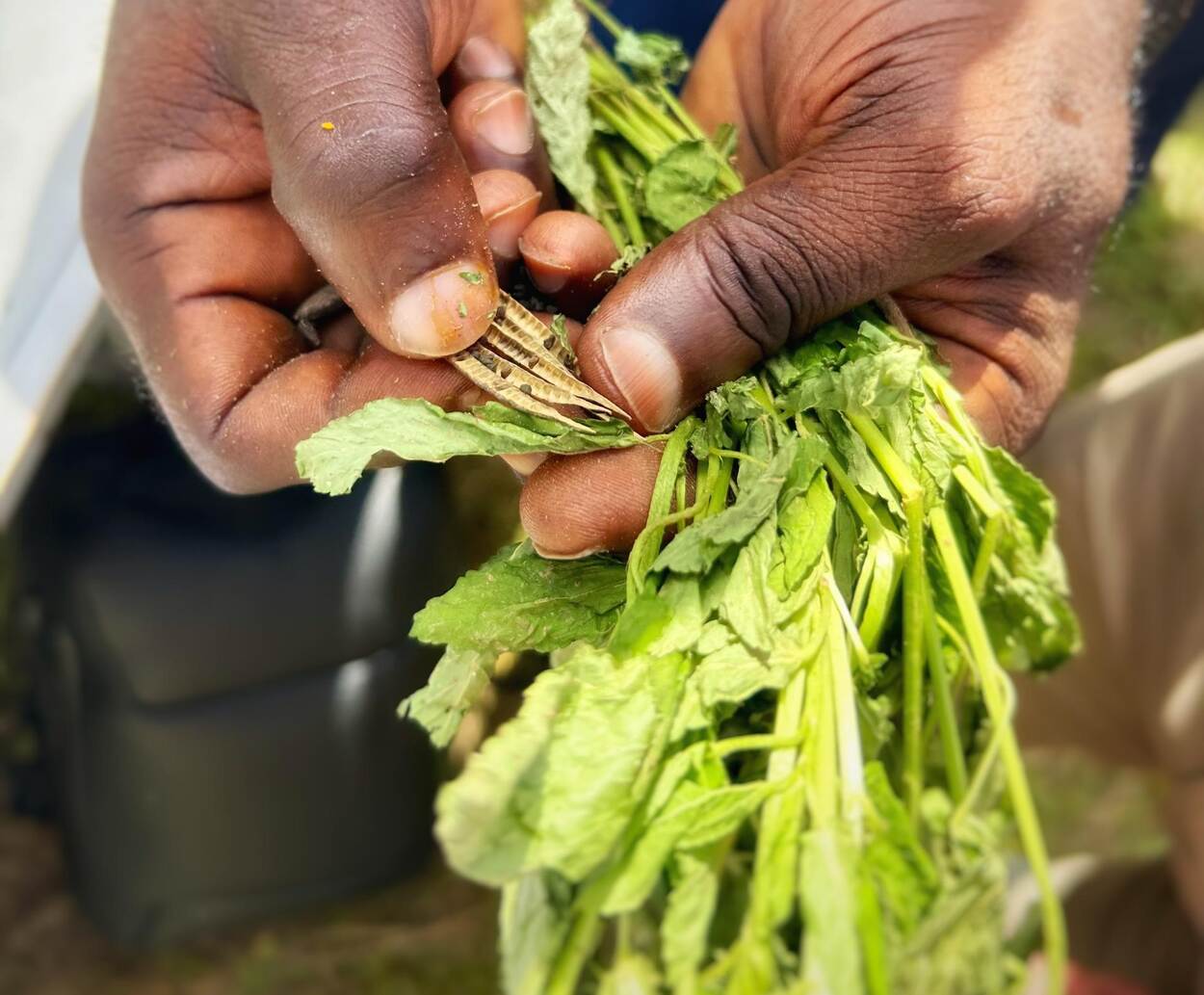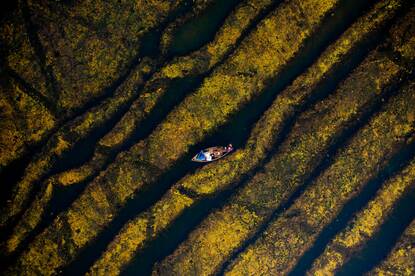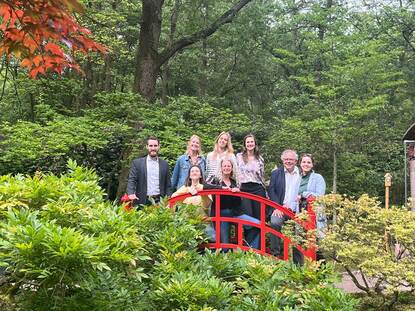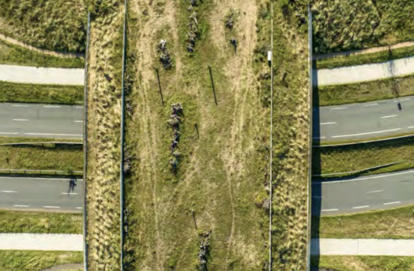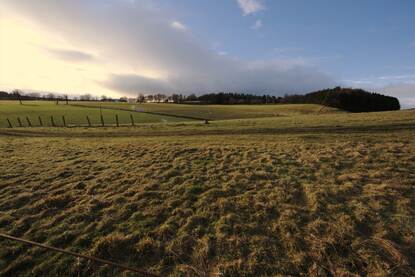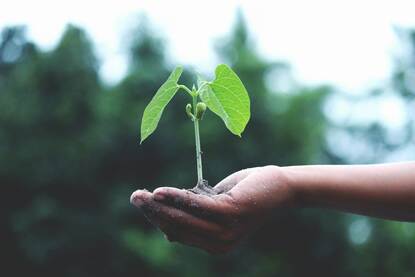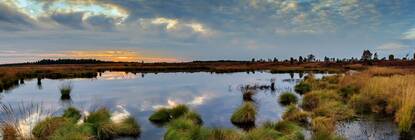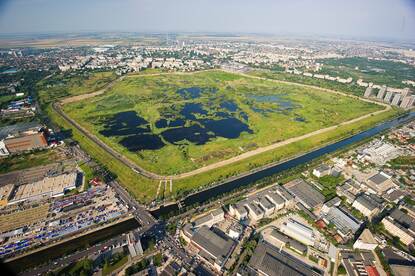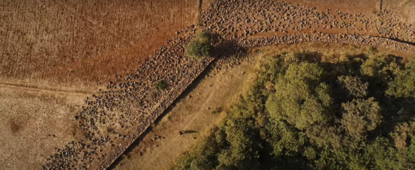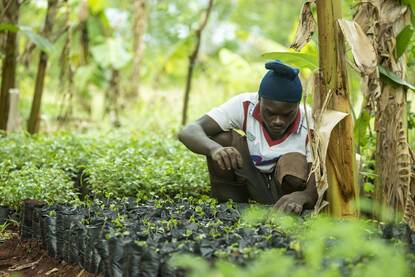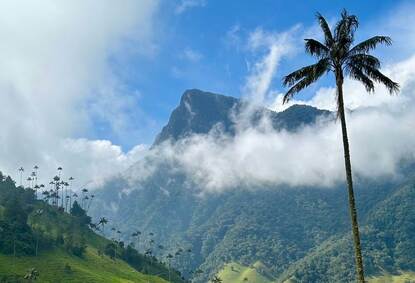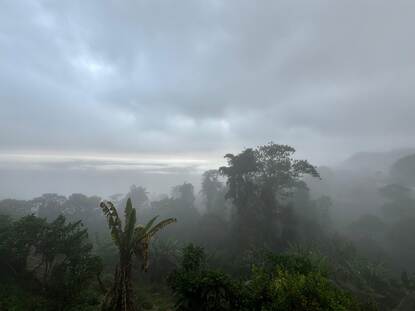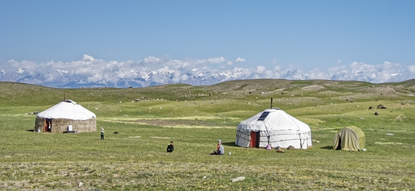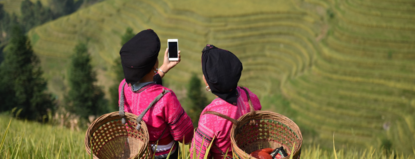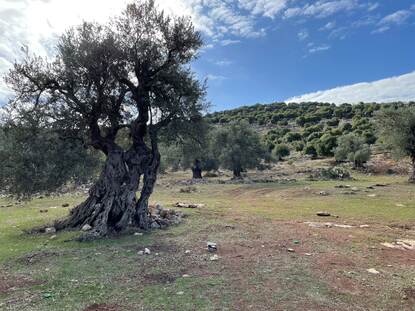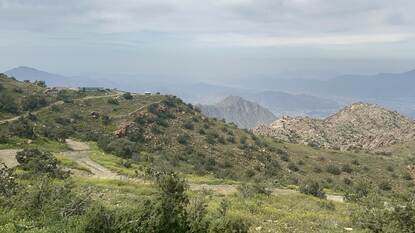The topic of biodiversity in Ghana is closely linked to neglected and underutilized species (NUS). These minor crops are integral to rural livelihoods, food security, and the environment. However, they are increasingly at risk due to genetic erosion and a lack of conservation efforts, making initiatives to protect them more urgent.
For centuries, rural communities in Ghana have maintained neglected and underutilized species (NUS) as part of their local food systems. These species, also called minor or orphan crops, are vital for food and nutrition, animal feed and medicinal purposes, but they also play a role in cultural traditions and income generation. Furthermore, they contribute to various ecosystem services such as climate mitigation, water regulation, and soil health.
Despite their importance, the genetic diversity of NUS is under threat. The most recent national study by the Department of Crop Sciences, Kwame Nkrumah University of Science and Technology, Kumasi, Ghana identified 72 NUS in Ghana. Yet, their survival is precarious due to limited knowledge of their diversity and potential. Genetic erosion is a growing concern, especially as traditional knowledge about these species fades. There is also a lack of knowledge about its effective conservation and storage practices. In addition, most of the agricultural policies in Ghana heavily favor staple and commodity crops, leaving little room for the development or crop improvement of NUS.
These crops are scattered across the country, with their presence depending on factors such as climate, agro-ecology, and cultural practices. Unfortunately, national gene banks and crop improvement programs have not prioritized these species, further marginalizing them. A study funded by the Netherlands Agricultural Network (LAN) team at the Dutch Embassy in Accra on the diversity of NUS crops in the Akwapem North District of Ghana has revealed crop varieties which need to be conserved.

The NUS project: piloting a community seed bank in Ghana
One solution to protect and conserve NUS is the establishment of community seed banks. These banks aim to give farmers more control over their seeds, encourage cooperation within farming communities, and help maintain the agricultural biodiversity that is essential for food security. These seed banks also provide access to a diverse collection of planting materials, allowing communities to preserve and propagate local crop varieties.
Community seed banks have proven successful worldwide, with organizations like the Alliance of Bioversity International & CIAT supporting over 80 such banks in 30 countries. However, until recently, Ghana did not have any community seed banks. That changed in 2023 when a pilot project, supported by the LAN team with funding and expertise and coordinated by the NUS Network Ghana and the Alliance, led to the creation of a community seed bank in Adawso, located in the Akwapim North District. The NUS Network Ghana is a non-government research and development organization that promotes NUS through the conservation of their genetic resources, development of improved varieties, and upgrading of their value chains.
The video below shows clips of the inauguration of the pilot community seed bank in 2023.
In Ghana, biodiversity in agriculture has long been sustained through the cultivation of neglected and underutilized species (NUS), often referred to as minor or orphan crops. These species have played a crucial role in local ecosystems, supporting food security, nutrition, animal feed, and medicinal use, while also contributing to income generation and preserving socio-cultural traditions. Beyond these immediate benefits, NUS are vital for maintaining agricultural biodiversity, promoting ecosystem services such as climate resilience, water regulation, and soil health, which are essential in the face of environmental challenges. These species, despite their value, are under-researched, resulting in their genetic erosion and loss of traditional knowledge. The situation poses a risk to food security and agricultural sustainability.
This seed bank focuses on conserving the rich diversity of crops found in the region, including root and tuber crops, cereals, legumes, and fruit trees. Adawso is home to about 3,900 people and is an important source of food for the nearby cities of Koforidua and Accra. The local farmers’ group, Nyonkopa, with 120 members, plays a central role in managing the seed bank and ensuring its sustainability.

Role of farmers
Farmers are at the heart of the community seed bank initiative. They manage the collection and conservation of seeds from their fields and home gardens, ensuring that crop diversity is maintained. In Adawso, women especially play a key role in managing the seed bank, acting as custodians and managers of the diverse variety of crops.
The community seed banks do more than just store seeds. They also integrate on-farm conservation. For crops like bananas, which cannot be easily stored in a seed bank, farmers maintain field plots dedicated to conserving these vegetatively propagated crops. These plots will be essential for distributing seedlings to other community members and beyond, ensuring the continued survival of these important species.

On-farm conservation of NUS root and tuber crops and bananas
Root and tuber crops, including bananas, are propagated vegetatively and cannot be stored in traditional seed banks. To conserve these crops, the community seed bank in Ghana integrates on-farm conservation. Selected farmers manage plots that showcase a diversity of these crops. They have been trained on sustainable farming practices, particularly the challenges of conserving vegetatively propagated species.
This integration of seed banks with on-farm conservation allows farmers to actively participate in safeguarding their crop varieties. Additionally, farmers and local stakeholders receive training on the principles and practices of community seed banking, which helps build local capacity for long-term conservation.

Promoting the community seed bank
Despite its essential role, agrobiodiversity through seed banks has received limited attention in Ghana’s agricultural policies. The NUS Network Ghana, along with local government officials and agricultural extension agents, is working to change this. The community seed bank proposal has been presented to local staff from MoFA, who have expressed interest and provide technical support.
At the same time, the Mangoase Senior High School in the region has become involved in the initiative. The school’s director supports the project, and teachers and students have formed an Agrobiodiversity Fanclub to raise awareness about the importance of conserving local crop varieties. The school also provided land for the construction of a new storage facility for the seed bank.
‘Despite the essential role of agrobiodiversity, it has received limited attention in Ghana’s agricultural policies’
Prospects
While the establishment of the community seed bank is a significant step forward, more work is needed to ensure its long-term success. Key areas for improvement include:
-
Extending the period of technical and financial support to the Mangoase community seed bank to strengthen the management of the seed field banks (in farmer fields) and build the local capacity of farmers, teachers and students to manage the community seed bank.
-
Developing value-addition activities from NUS to increase their socio-economic recognition and economic value, and contribute to improved nutrition and health, income generation, conservation and sustainable livelihoods.
-
Developing a curriculum module about community seed banking for the Mangoase Senior High School in collaboration with the teachers and students of agriculture. This module should cover conceptual and practical aspects, such as the importance of agrobiodiversity; in situ and ex situ conservation; characterization of local crop varieties; identification of additional varieties to be conserved; principles of safe seed storage; seed management knowledge and skills; culture, crops and food, with special attention paid to NUS.
-
Developing outreach activities to make the work of the Mangoase community seed bank better known and generate more interest and support for community seed banking in Ghana.
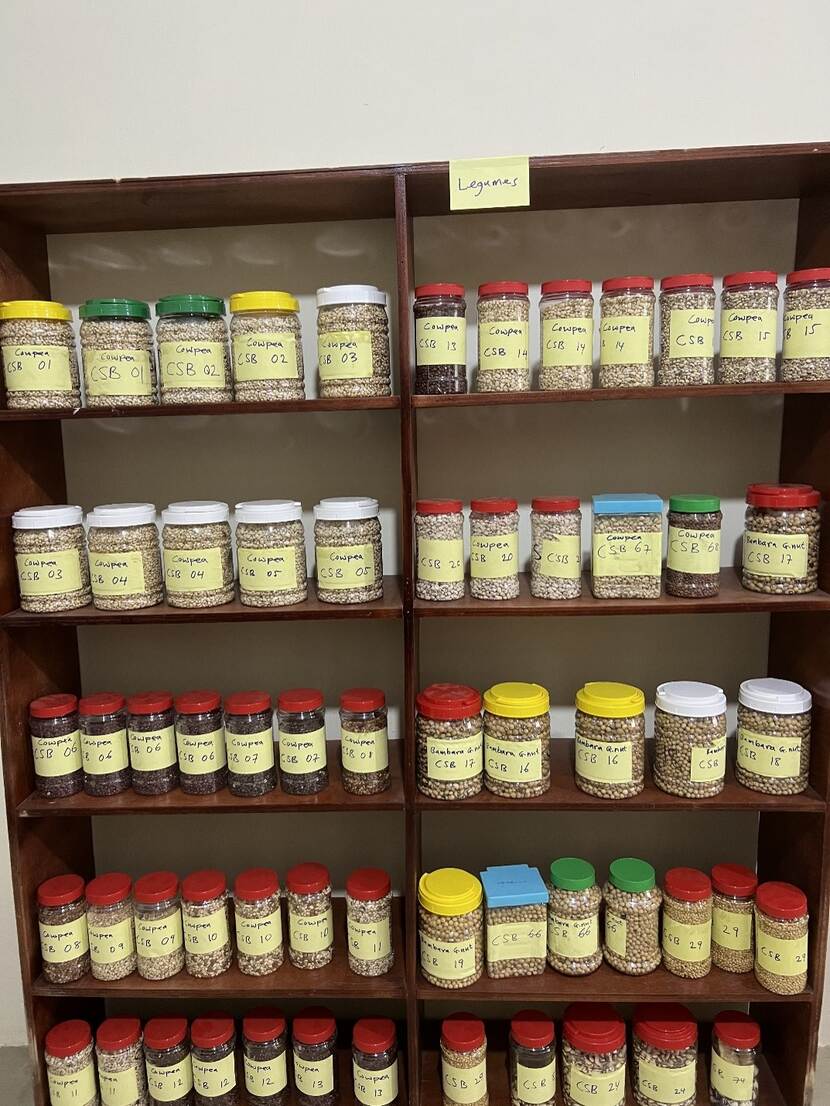
Contributing to food systems transition: what Dutch cooperation can do
To scale the pilot initiative, stakeholder collaboration can drive two key actions:
-
Expand the Mangoase community seed bank model across Ghana, in partnership with national institutions like PGRRI, universities, and seed sector stakeholders. This effort could draw insights from countries with more established seed banking systems (e.g., China, Nepal, Uganda). Collaboration with international organizations, such as SeedChange, can also be explored.
-
Develop a national NUS action plan, based on a food systems or value chain approach, from farm to fork and from fork to farm. focusing on participatory research, policy advocacy, market integration, and awareness-raising. Dutch support can help initiate this by building on previous national discussions and facilitating a multi-stakeholder process for plan approval.
To expand on the success of the Mangoase community seed bank, further collaboration with development partners can help scale the initiative. This includes developing a proposal to establish more seed banks in other regions of Ghana, working with key national institutions like the Plant Genetic Resources Research Institute, and conducting participatory research to identify and promote NUS with the potential for value addition.
Additionally, a national NUS action plan, based on a food systems approach, could be developed to provide a framework for promoting NUS from farm to fork. This would involve creating awareness about the benefits of NUS, influencing policy and market demand, and providing evidence through research and field studies.
By working together, Dutch partners and Ghanaian stakeholders can help safeguard Ghana’s biodiversity and ensure that neglected and underutilized species continue to play a vital role in the country’s food security and agricultural future.
More information
Special thanks to the following authors/contributors: Daniel Nyadanu (NUS Network, Ghana) and Ronnie Vernooy (Bioversity International, Wageningen, the Netherlands).
Would you like to know more about NUS and community seed banks in Ghana? You can visit the country page of Ghana at the website Agroberichtenbuitenland of the Dutch Ministry of Agriculture, Fisheries, Food Security and Nature. You can also send an email to the LAN team in Accra: ACC-LVVN@minbuza.nl.
References
- Aboagye, L.M., Obirih-Opare, N., Asante, I.K., Amoatey, H.M., Owusu, E.O., Ofosu, I.W. (2010). Ghana country report on neglected and underutilized plant species. Consultancy report submitted to the Regional Universities Forum for Capacity Building in Africa, 31.
- Nyadanu, D., Aboagye, L.M., Akromah, R., Dansi, A. 2016. Agro-biodiversity and challenges of on-farm conservation: the case of plant genetic resources of underutilized crop species in Ghana. Genetic Resources and Crop Evolution 63: 1397-1409. DOI 10.1007/s10722-015-0327-2
- Nyadanu, D. and Vernooy, R. 2023. Sustainable Conservation and Use of Neglected and Underutilized Crops through a Pilot Community Seed/Field Bank in Adawso. Final technical report. NUS Network, Ghana and Bioversity International, Italy
- Nyadanu, D. and Lowor, S.T. (2014). Promoting competiveness of neglected and underutilized crop species: comparative analysis of nutritional composition of indigenous and exotic leafy and fruit vegetables in Ghana. Genetic Resources and Crop Evolution, DOI:10.1007/s10722-014-0162-x.
- Vernooy, R. 2021. Roles, trends and challenges of neglected and underutilized species in Ghana. A review of the literature. Rome (Italy): Alliance of Bioversity International and CIAT. https://hdl.handle.net/10568/116206.
- Vernooy, R. and Nyadanu, D. 2021. Roundtable: The Conservation and Sustainable Use of Neglected and Underutilized Species (NUS) in Ghana -Highlights-. The Alliance of Bioversity International and CIAT, Rome, Italy. https://hdl.handle.net/10568/115973.
- Vernooy, R., Sthapit, B. and Bessette, G. 2020. Community seed banks: concept and practice. Facilitator handbook (updated version). Rome (Italy): Bioversity International; Department of Agriculture, Forestry and Fisheries, Pretoria. Available: https://cgspace.cgiar.org/handle/10568/81286.
